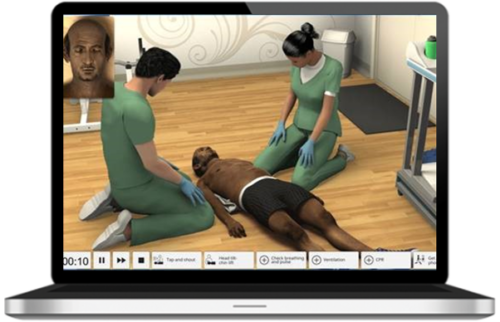Whether you’re a personal trainer, cycling coach, group exercise instructor or whether you’re an employee or independent contractor, it takes more (a lot more) than big arms or a lean body to do what you do. As everybody knows, you have to be certified.
Although getting certified and staying certified can be a hassle, the reasons for doing so are plentiful. Here are four reasons to do so:
1. Credibility (aka getting a job). One of the first questions for a trainer in a job interview is, “Who are you certified by?” In and of itself is the assumption that you’re certified. You wouldn’t be sitting here if not. Is the answer to “By who?” really that important?
The answer is yes and no, but mostly yes.
The answer is “yes” in the sense that your certification should come from an accredited organization, which in fitness means a certifying body accredited by the National Commission for Certifying Agencies (NCCA). It’s not mandatory, and some good certifying organizations are not affiliated by NCCA, but five of the big ones are (ACSM, NSCA, NASM, AFAA and ACE).
“No” is the answer when it comes to your clients. They care whether or not you’re certified, but most don’t care by whom perhaps mostly because they don’t know the difference between certifying agencies.
The fitness industry doesn’t have its own version of the Good Housekeeping Seal of Approval, Underwriter’s Laboratories or even a Consumer Reports that will guide consumers to a specific certification. And although many studio owners have preferences for the certifying agencies from which their trainers have certifications, the reality is that the quality of the trainer is more important than the certificate on the wall.
2. Differentiation. Even though having a certification from the right certifying agency is important, the most important part of hiring a trainer today may hinge on what they are certified in. And that often means trainers need to go beyond basic certifications to earn certifications in specific areas, such as working with the aging population, people with arthritis or diabetes, or cardiac patients. Certain sub-categories of certifications even allow trainers to provide nutritional counseling. Trainers who don’t specialize will lose out on opportunities from employment to advancement. These sub-certifications add to the personal brand of fitness professionals and help them differentiate themselves from other trainers. These sub-certifications also differentiate the studio they work for from among competing studios.
3. Staying up-to-date. Once a studio owner verifies a trainer is certified, they need to ensure the fitness professional has kept their certification current. If they don’t, they are opening themselves to risk.
The age-old dichotomy is do you want somebody older with experience or somebody younger who knows the “new ways?” The answer is that studio owners want experience plus the latest knowledge. For example, a knee replacement is done differently today than it was 15 years ago. You wouldn’t want to be your surgeon’s first patient, but you also want your surgeon to have kept up on the latest medical procedures.
And so it is with training. There are new ways to do things and new theories that can improve results and enhance enjoyment. The learning comes from the requirements by certifying agencies that those they have certified continue to take educational courses and seminars to earn continuing education credits or units. Owners who don’t re-check that someone’s certification is up to date are playing with fire.
4. Lessen the liability risk. You wouldn’t go to a doctor, dentist or investment advisor who didn’t have a plaque on their wall denoting to that they have the training and expertise to do their jobs. Trainers need to provide the same proof to show clients that they understand their clients, their issues and their goals and that the trainers can help the client achieve them. If trainers offer more than physical training and start offering mental, emotional or dietary training, they need to be qualified (i.e., certified) in each area. Having these certifications should be a sign that the trainer has competence in their field and specialization, which lessens the liability risk that is heightened when trainers go outside their scope of practice.
BIO
Chuck Leve is a 40-year veteran of the fitness industry and proven successful developer of fitness industry associations. Currently, he serves as the executive vice president of business development for the Association of Fitness Studios (AFS). He’s been involved in the creation and development of some of the most successful trade associations in the history of the fitness industry. The Association of Fitness Studios (AFS) provides members with a Trust Package that showcases a higher level of commitment to business practices – while all members abide by the AFS code of conduct. For more information on AFS, visit afsfitness.com.











































































